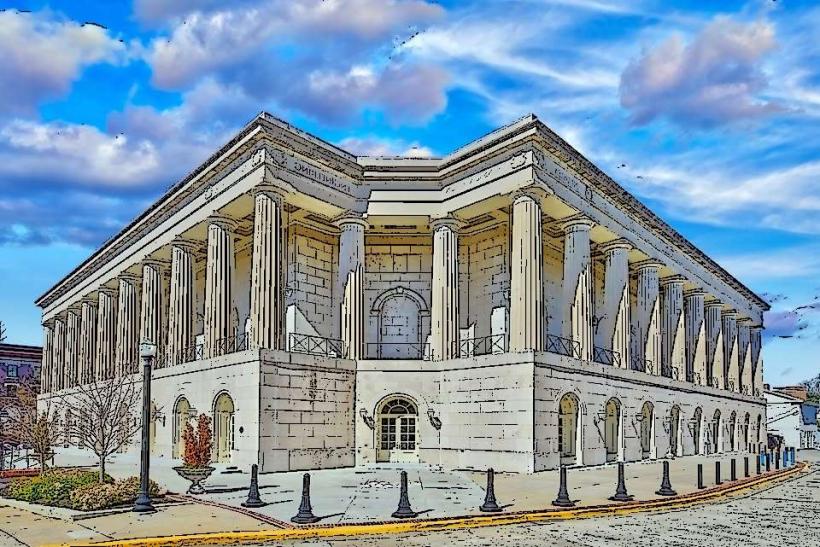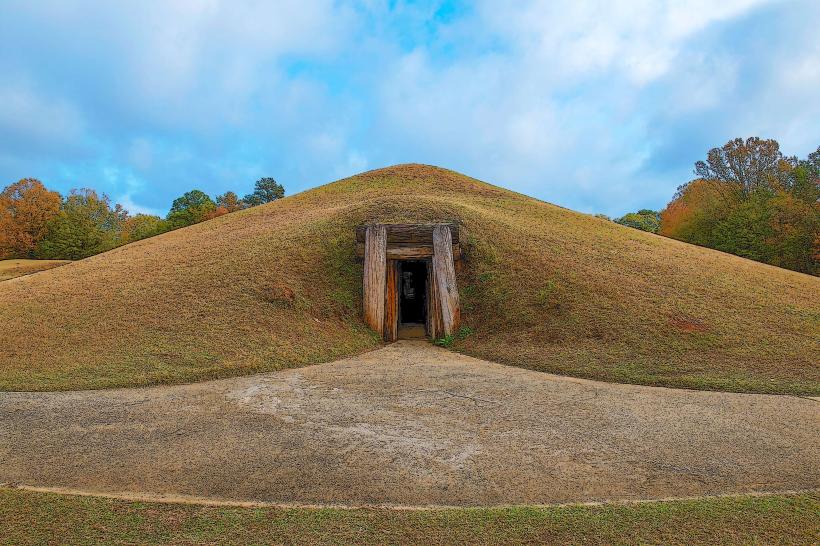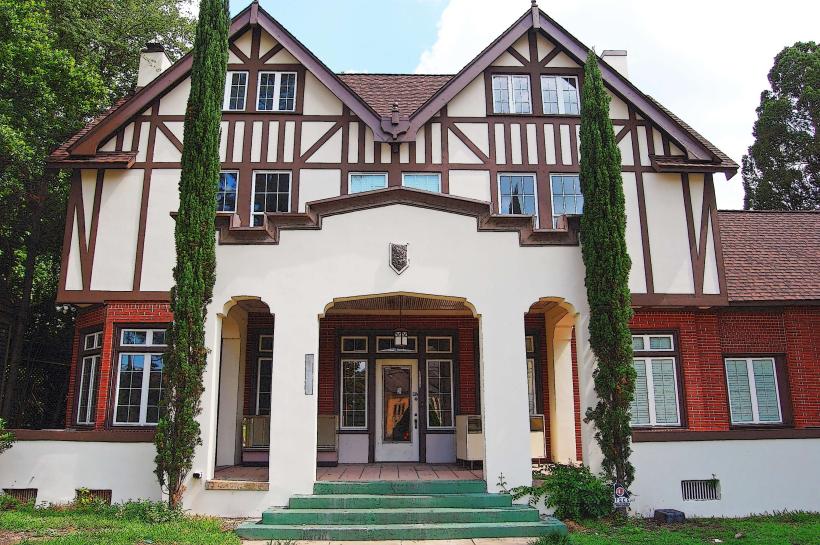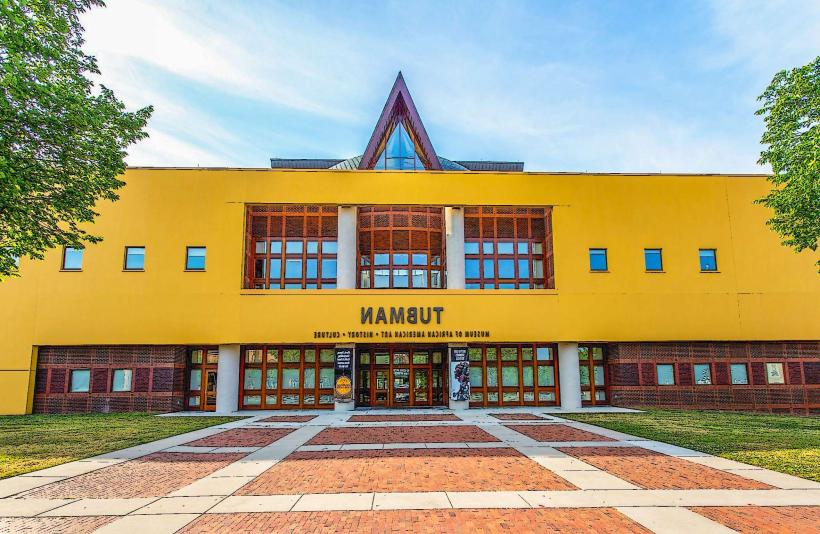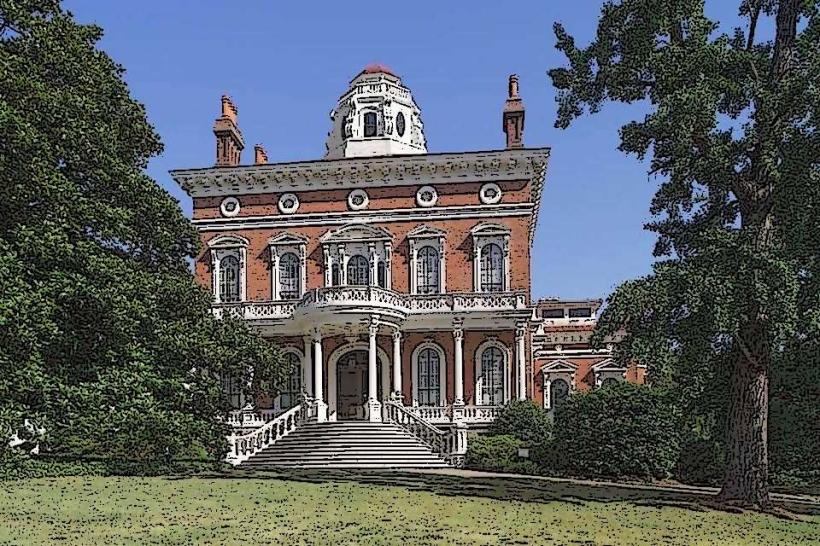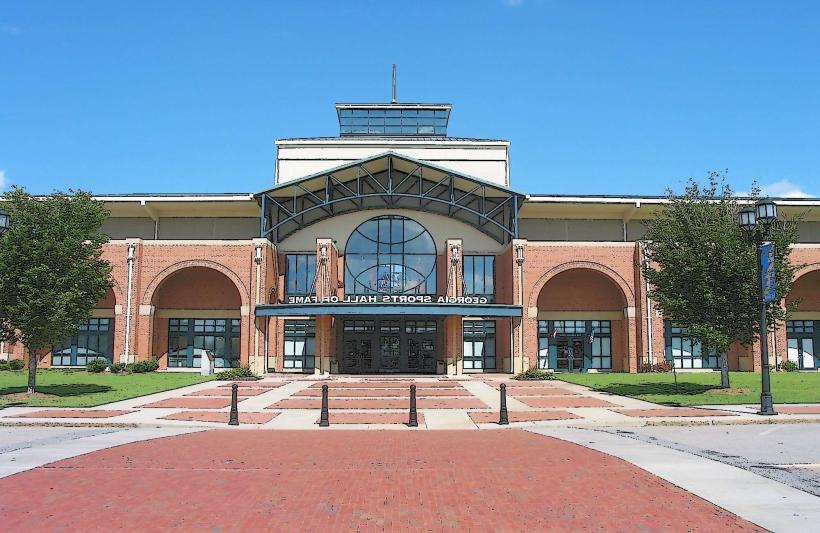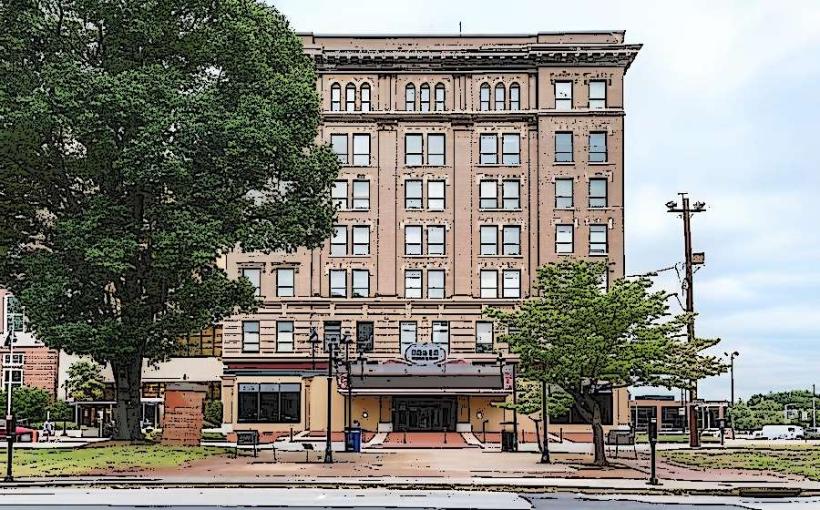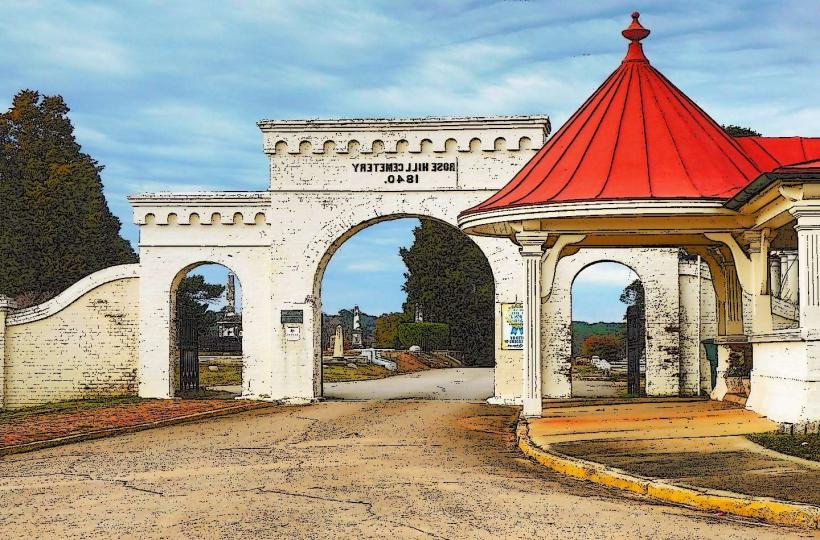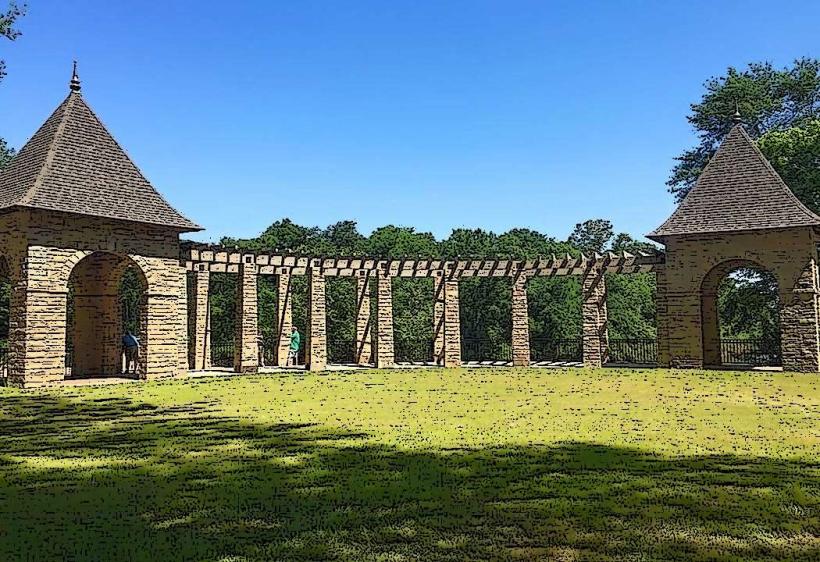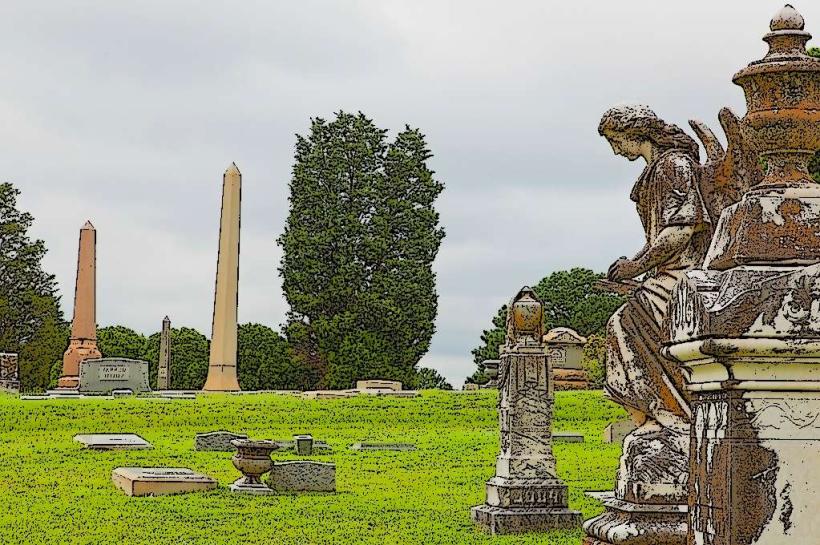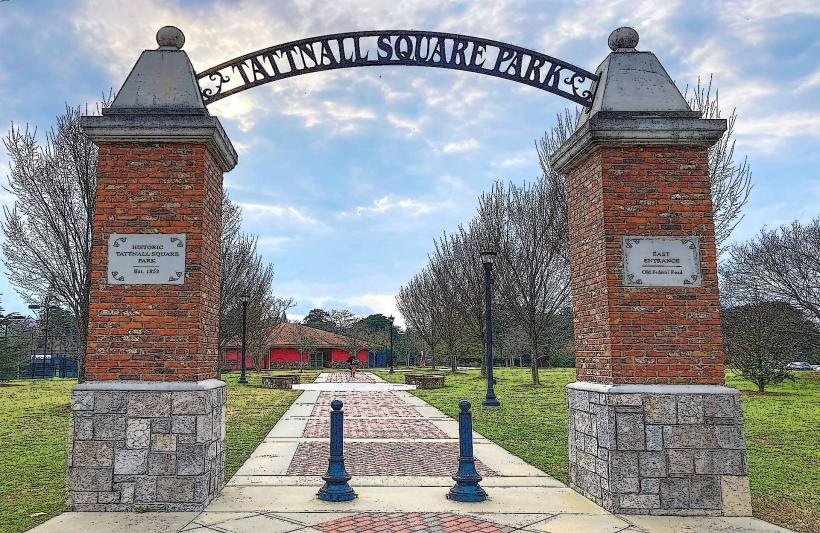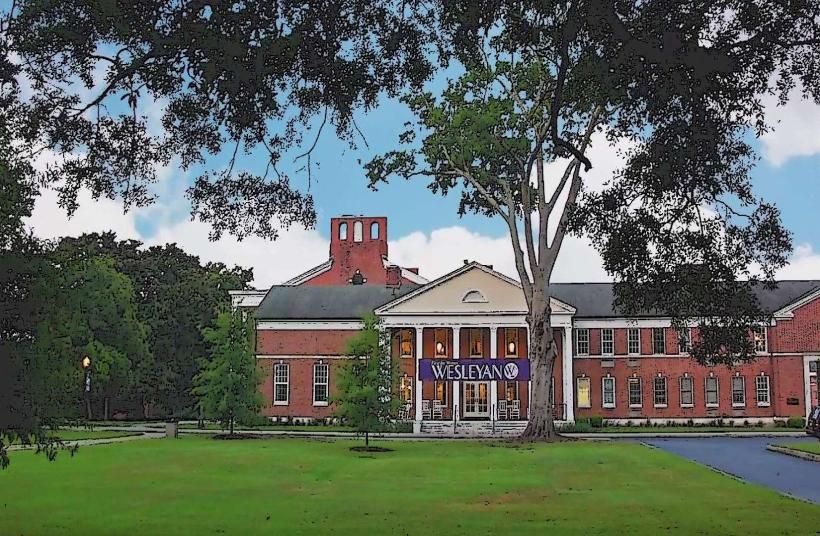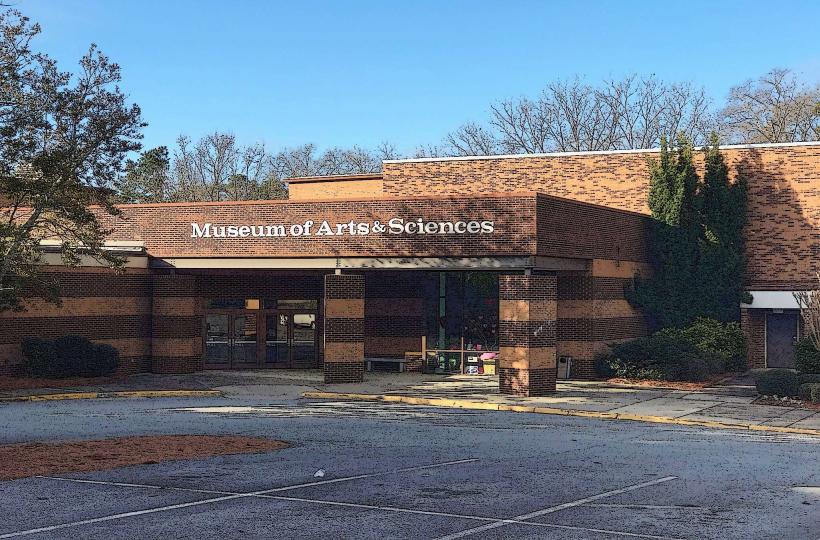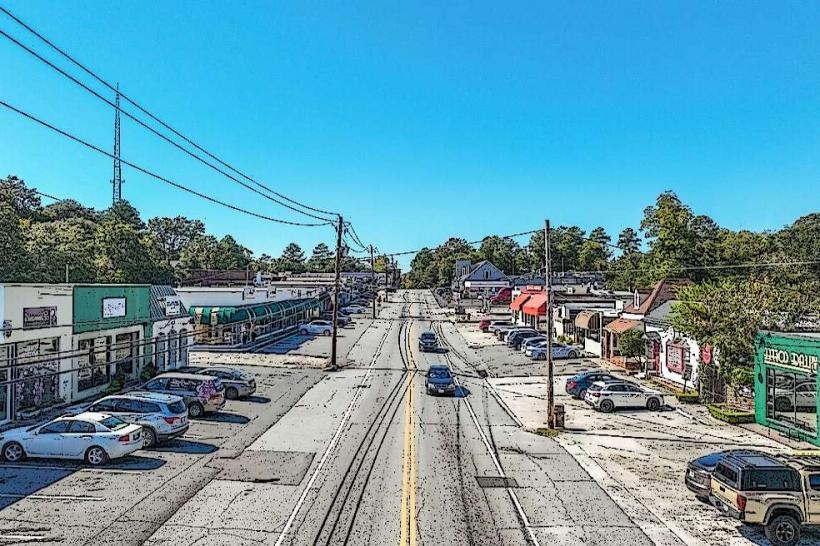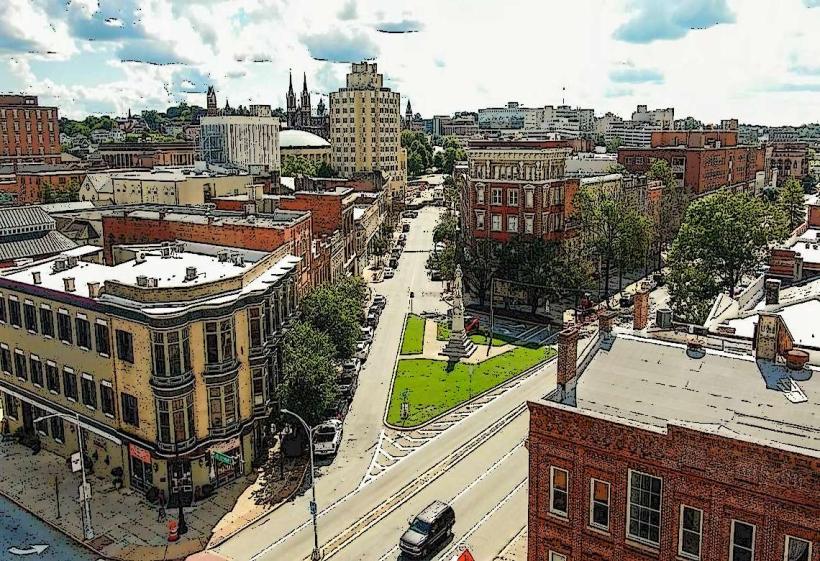Information
Landmark: Cannonball HouseCity: Macon
Country: USA Georgia
Continent: North America
Cannonball House, Macon, USA Georgia, North America
The Cannonball House is a historic house museum located in Macon, Georgia, USA.
It is a preserved antebellum structure that served various roles throughout its history.
Visual Characteristics
The house is a two-story brick structure built in the Greek Revival architectural style. The exterior walls are constructed of red brick. The roof is hipped and covered with slate. It features a prominent two-story portico with Doric columns. The windows are tall and rectangular, with white trim. The house measures approximately 40 feet in width and 60 feet in depth.
Location & Access Logistics
The Cannonball House is situated at 856 Mulberry Street in downtown Macon, Georgia. It is approximately 0.5 km west of the Ocmulgee River. Parking is available on-street in designated metered spots surrounding the property. Public transport options include the Macon-Bibb County Transit Authority bus lines that service Mulberry Street.
Historical & Ecological Origin
Construction of the Cannonball House was completed in 1839. It was designed by architect Elias Carter. The original purpose was a private residence for the wealthy merchant George W. Anderson. The house gained its name from a Union cannonball that struck its facade during the American Civil War, a mark still visible today.
Key Highlights & Activities
Visitors can tour the preserved rooms of the house, which are furnished with period-appropriate artifacts. The museum exhibits detail the history of Macon and the house itself. Specific exhibits focus on the Civil War era and the impact of the cannonball strike. Photography is permitted without flash.
Infrastructure & Amenities
Restrooms are available for visitors within the museum. Limited shaded areas are present on the porch. Cell phone signal (4G/5G) is generally strong in this downtown location. Food vendors and restaurants are located within a 0.2 km radius on Mulberry Street.
Best Time to Visit
The best time of day for interior photography is during midday when natural light is most direct through the windows. The museum is open year-round, Tuesday through Saturday. No specific tide requirements apply.
Facts & Legends
A notable historical oddity is the intact cannonball embedded in the house's exterior wall, a direct testament to its Civil War experience. A local legend suggests that the ghost of a former resident can sometimes be seen looking out from the upper windows.
Nearby Landmarks
- 0.3km East: Ocmulgee Mounds National Historical Park
- 0.4km North: Macon City Hall
- 0.6km Southwest: The Grand Opera House
- 1.2km West: Georgia Sports Hall of Fame

